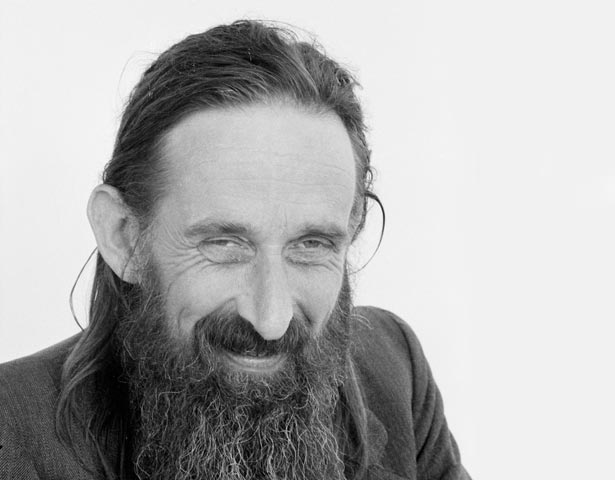
James K. Baxter was one of New Zealand's best known and best loved poets. In his short life he produced a huge number of poems, as well as plays, literary criticism, and social and religious commentary. A hugely influential figure, Baxter was as well known for his life as for his writing.
Baxter was born in Dunedin in 1926, the younger son of the well-known conscientious objector Archibald Baxter. He took an interest in poetry from an early age, writing his first poem at seven and composing three or four a week by the time he was in his teens. His first collection of poems was published in 1944 when he was only 18, and a new collection was published every few years thereafter. He was soon regarded as the pre-eminent poet of his generation.
He was deeply influenced by the Romantic poets, by classical mythology, and by the British modernist poets of the 1930s. Like many of his contemporaries he explored the character of New Zealand society through his poems, contrasting the wildness and grandeur of the New Zealand landscape with the ‘human daydream’, the ‘short fever’ of human life. In the face of the Franz Josef Glacier, which dwarfed all human endeavour, Baxter pondered ‘What sign / Can I leave on cairn or tree to tell / The next comer that my thoughts were human?’
Baxter spent several years grappling with university study and then working on farms in Canterbury, before settling in Wellington with his young family in 1948. He struggled with alcoholism, but the poems continued to flow. Christian theology was an important influence in his life, and he was baptised as an Anglican in 1948 and then as a Catholic in 1957.
After visiting India in 1959 he returned to New Zealand with a critical eye for poverty and social inequality. Poems such as ‘A Rope for Harry Fat’ and ‘A Bucketful of Blood for a Dollar’ expressed Baxter's despair about a society which prioritised financial gain over spiritual values, and his growing dislocation from ‘the long Jehovah faces / Above their Sunday suits’ who ran the country. He developed an interest in Māori culture, seeing Māori as marginalised and persecuted by mainstream society.
Speaking at a writers' conference in 1951, Baxter had argued that it was ‘reasonable and necessary that poetry should contain moral truth, and that every poet should be a prophet according to his lights’. The poet ‘should remain as a cell of good living in a corrupt society, and in this situation by writing and example attempt to change it’. These ideas found their full expression in 1968 when Baxter decided to form a community centred on ‘spiritual aspects of Maori communal life’, to ‘try to live without money or books’. For Baxter, who thought Auckland a ‘great arsehole’ and Wellington ‘a sterile whore of a thousand bureaucrats’, this meant retreating to the countryside. A community was established on the Whanganui River at the remote rural settlement of Jerusalem in 1969.
Baxter now referred to himself as ‘Hemi’. In addition to his time at Jerusalem, he periodically lived with drug addicts in an Auckland commune. His bearded and shabby appearance, and outspoken attitudes towards the authorities, earned him a dubious national celebrity. He viewed middle-class society as a specious and hypocritical ‘civilized coma’, fenced off ‘From the forces of revolt and lamentation’ by the police. ‘How can I live in a country where the towns are made like coffins / And the rich are eating the flesh of the poor / Without even knowing it?’, Baxter lamented in 1972. His infamy made life at Jerusalem complicated, and his indigent and haphazard lifestyle seriously affected his health. He died of a heart attack in Auckland on 22 October 1972, at the age of 46.
Baxter's output was massive, his Collected Poems (1979) running to more than 600 pages. The quality of his work and his public stature made him one of his era's defining voices. Poet Ian Wedde wrote in 1985 that Baxter ‘is probably the nearest we have come this century to a "folk poet" whose circumference our reading does not seem able to reach.’
Tim Shoebridge
See also:
How to cite this page
'James K Baxter', URL: https://nzhistory.govt.nz/people/james-k-baxter, (Ministry for Culture and Heritage), updated 8-Nov-2017


Community contributions